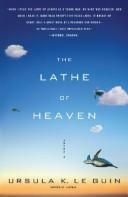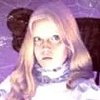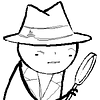You need to sign in or sign up before continuing.
Take a photo of a barcode or cover
A unique but also totally Le Guin experience. Very thoughtful, philosophical, and quiet.
The character of George was such an interesting choice. The way he thinks of himself and the way others talk about him was a study in what our culture values in people and men in particular. His calm strength puzzles everyone.
I also loved the exploration of what can we or should we do to make the world a better place. For me, Le Guin took this question even further than most, questioning the idea of purpose *at all* never mind what our purpose might be. Captured best in this conversation between Haber and George:
“But in fact, isn’t that man’s very purpose on earth—to do things, change things, run things, make a better world?”
“No!”
“What is his purpose, then?”
“I don’t know. Things don’t have purposes, as if the universe were a machine, where every part has a useful function. What’s the function of a galaxy? I don’t know if our life has a purpose and I don’t see that it matters. What does matter is that we’re a part. Like a thread in a cloth or a grass-blade in a field. It is and we are. What we do is like wind blowing on the grass.”
The story got a bit goofy at times, like with the aliens who feel especially of the era. Le Guin is also both forward thinking and dated, as when she notes the housewives coming to the store for home goods… But you can always count on her for something thought provoking.
Other favorite quotes:
… his own mind was so resistant to such divisions that he was slow to recognize them in others. But he had learned that they existed. He had grown up in a country run by politicians who sent the pilots to man the bombers to kill the babies to make the world safe for children to grow up in.
“Then this world will be like heaven, and men will be like gods!”
“We are, we are already,” Orr said, but the other paid no heed.
He stood and endured reality.
The character of George was such an interesting choice. The way he thinks of himself and the way others talk about him was a study in what our culture values in people and men in particular. His calm strength puzzles everyone.
I also loved the exploration of what can we or should we do to make the world a better place. For me, Le Guin took this question even further than most, questioning the idea of purpose *at all* never mind what our purpose might be. Captured best in this conversation between Haber and George:
“But in fact, isn’t that man’s very purpose on earth—to do things, change things, run things, make a better world?”
“No!”
“What is his purpose, then?”
“I don’t know. Things don’t have purposes, as if the universe were a machine, where every part has a useful function. What’s the function of a galaxy? I don’t know if our life has a purpose and I don’t see that it matters. What does matter is that we’re a part. Like a thread in a cloth or a grass-blade in a field. It is and we are. What we do is like wind blowing on the grass.”
The story got a bit goofy at times, like with the aliens who feel especially of the era. Le Guin is also both forward thinking and dated, as when she notes the housewives coming to the store for home goods… But you can always count on her for something thought provoking.
Other favorite quotes:
… his own mind was so resistant to such divisions that he was slow to recognize them in others. But he had learned that they existed. He had grown up in a country run by politicians who sent the pilots to man the bombers to kill the babies to make the world safe for children to grow up in.
“Then this world will be like heaven, and men will be like gods!”
“We are, we are already,” Orr said, but the other paid no heed.
He stood and endured reality.
The Lathe of Heaven offers a compelling and original premise: a man whose dreams have the ability to alter reality, including the history of the world itself. This man, George Orr, finds himself at the mercy of a psychiatrist who specializes in dream research– and who is determined to reshape the world accordion to his own vision.
The novel explores profound themes of power, philosophy, the ethics of playing God, and the inherent dangers of tampering with the natural order of things.
While the concept is undeniably original, I found the execution uneven at times. George Orr, our dreamer, comes across as passive and forgettable, while Dr. Haber, the manipulative psychiatrist, feels somewhat one-dimensional. The novel’s psychedelic and confusing ending left me wanting more clarity.
As a big fan of Le Guin’s work, I’m still glad I read this. Despite its flaws, it showcases her skill as a writer and storyteller. However, in my opinion, The Lathe of Heaven is one of her weaker works.
The novel explores profound themes of power, philosophy, the ethics of playing God, and the inherent dangers of tampering with the natural order of things.
While the concept is undeniably original, I found the execution uneven at times. George Orr, our dreamer, comes across as passive and forgettable, while Dr. Haber, the manipulative psychiatrist, feels somewhat one-dimensional. The novel’s psychedelic and confusing ending left me wanting more clarity.
As a big fan of Le Guin’s work, I’m still glad I read this. Despite its flaws, it showcases her skill as a writer and storyteller. However, in my opinion, The Lathe of Heaven is one of her weaker works.
challenging
mysterious
medium-paced
Plot or Character Driven:
A mix
Strong character development:
Yes
Loveable characters:
Yes
Diverse cast of characters:
Yes
Flaws of characters a main focus:
Complicated
strange, but beautiful. I couldn’t help but fantasize about a movie adaptation. in the right hands, it could make for a fantastic film, le guin’s visual metaphor would translate well
reflective
slow-paced
Plot or Character Driven:
Character
adventurous
challenging
dark
reflective
tense
medium-paced
Plot or Character Driven:
A mix
Strong character development:
Complicated
Loveable characters:
Complicated
Diverse cast of characters:
Complicated
Flaws of characters a main focus:
Yes
reflective
fast-paced
Plot or Character Driven:
Plot
- This novel about dreams felt quite dreamlike, reality was in flux and took new shapes as we progressed. The novel felt a tad dated; it reads like classic scifi sometimes in the sense that dialogue at times feels more like a philosophical monologue. But to me this worked well with the novel! The placid main character Orr had a great foil in Haber, and the question at the heart of the novel, about whether it would be right to change reality (for the better?) was explored with George being positioned close to non-interference while Haber wanted to fix the world. As LeGuin herself noted about Haber: "[...] poor Haber in the book is a do-gooder whose self-defeated. He is not defeated by anybody evil. He's not evil. He means well all the way through the book but he's doing it wrong." Haber’s transformation across the novel into a godlike character obsessed with fixing the ills of the world, while simultaneously ruining it made him frustrating but not odious. I can't deny that I sympathize with his attempts at making a better world. I love their interactions, like him chiding George: "You have no social conscience, no altruism. You're a moral jellyfish. I have to instill social responsibility in you hypnotically, every time. And every time it's thwarted, spoiled." The novel has great re-readability as I would like to catch more of how the world changed
+ excellent concept, exploration of such
- partly flat-ish characters
- rushed ending
- rushed ending
adventurous
mysterious
reflective
fast-paced
Plot or Character Driven:
A mix
Hello? Ursula?






